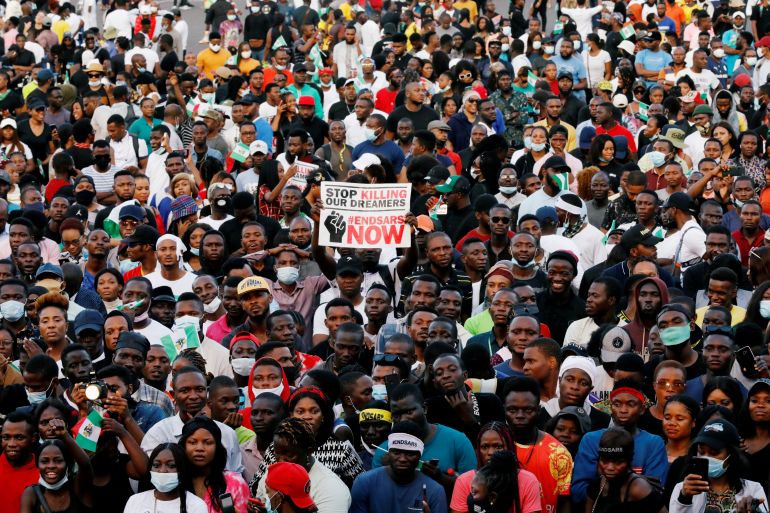As August 1st, 2024, approached, Nigeria found itself at a critical juncture. The planned nationwide #EndBadGovernance protests reflect a country grappling with mounting frustrations and a populace awakening to its collective power.
A Nation Under Pressure
The current Nigerian predicament can be likened toa volcanic eruption in the making, Just as pressure builds beneath the Earth's surface before a volcanic explosion, so too has discontent been brewing among Nigerians. The transition from the Buhari administration to the current govemment has been marked by economic turmoil and social unrest. The removal of fuel subsidies has triggered a domino effect, leading to skyrocketing prices across all sectors. Transportation costs have surged, causing a ripple effect on goods and services nationwide. As the middle class rapidly shrinks and a hunger crisis looms, Nigeria faces an unprecedented level of tension. This dire situation stands in stark contrast to the optimism of 2015 when Nigeria was hailed as the world's third-fastest-growing economy. The intervening years under the All Progressives Congress' era have seen a dramatic reversal of fortunes, leaving many Nigerians questioning the path their country has taken.
The People's Voice Resurges
Amidst these challenges, a new resilience has emerged among Nigerians. There's a growing realization that if the country's rapid deterioration continues unchecked, it could lead to an irreversible disaster. This awakening has manifested in a resurgence of public discourse across social media platforms. From Twitter spaces to instagram reels and Facebook feeds, there's an outpouring of rage and criticism against the government. This groundswell of discontent culminated in the planning of a nationwide #EndBadGovernance protest on August I, 2024. As with any major event in Nigeria, this planned protest has sparked intense debate, with opinions ranging from expert analysis to uninformed speculation.
Clarifying Constitutional Rights
It's crucial to address some misconceptions surrounding the legality of protests in Nigeria:
1. The Right to Protest: While not expressly guaranteed by the Constitution, the right to protest is derived from Sections 39 and 40 of the 1999 Constitution. These sections guarantee freedom of expression and the right to assembly and association. However, as noted in SOWORE v. FRN (2022) LPELR- 57439(CA), this right is not absolute and can be limited to maintaining peace and order in society.
2. Permits for Assembly: Contrary to popular belief, the requirement for a permit for lawful assembly, as stipulated in the Public Order Act, has been deemed unconstitutional. In A. N.P.P V. Inspector General of the Police (2007) 18 NWLR Pt. (1066) 457, the court ruled that this requirement is inconsistent with Section 40 of the constitution.
3. Constitutional Limitations: While Section 45 of the Constitution does set limits on certain rights, these limitations are intended to protect public safety, order, morality, and health. A peaceful protest calling for an end to bad governance does not inherently threaten these interests.
The Path Forward
Whether or not this protest leads to immediate economic change is secondary to its significance in reminding Nigerians that their voices matter. While it’s unrealistic to expect an instant transformation into a perfect society, this protest represents a crucial step in the long journey towards national recovery. Progressive change must start somewhere, whether initiated by the government or demanded by the people. As Nigeria stands on the brink of this significant demonstration, it's clear that the nation's future hangs in the balance. The coming days will reveal whether this protest marks the beginning of a new era in Nigerian govemance or another chapter in the countrys ongoing struggle for effective leadership.
Article written by: Amir Aliyu

